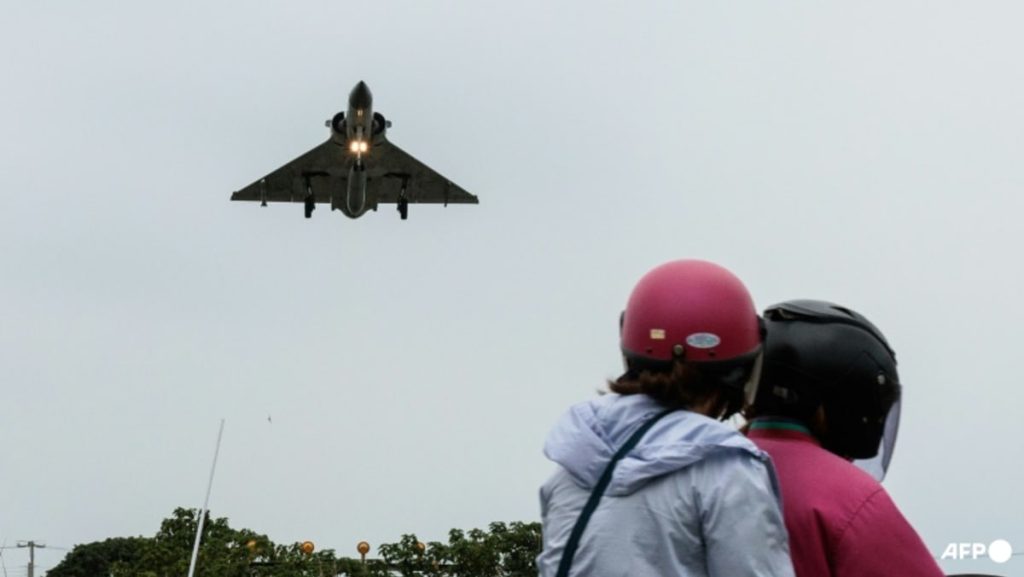China’s military conducted a second day of war games around Taiwan to test their ability to “seize power” and control key areas. These exercises were launched in response to Taiwan’s President Lai Ching-te, who took office just three days before the drills began. Taiwan has strongly condemned China’s actions, as China views Taiwan as its own territory and denounces Lai as a separatist. Lai’s inauguration speech, in which he called on Beijing to stop its threats and emphasized that the two sides of the strait were not subordinate to each other, further escalated tensions between the two nations.
The Eastern Theatre Command of the People’s Liberation Army continued its drills, named “Joint Sword – 2024A”, on the second day of exercises in the Taiwan Strait and nearby Taiwan-controlled islands. The purpose of these drills was to test their ability to jointly seize power, launch joint attacks, and occupy key areas. China has always maintained the option of using force to bring Taiwan under its control, and these war games were seen as a show of force and aggression towards Taiwan.
An animated video released by the command on its WeChat social media account depicted missiles being launched at Taiwan from various sources, including the ground, air, and sea. These missiles then struck the cities of Taipei, Kaohsiung, and Hualien in fiery explosions. The video included words that read “Sacred weapons to kill independence”, highlighting China’s stance on Taiwan’s push for independence. The use of traditional Chinese characters, which Taiwan also uses, in the animation added to the provocative nature of the demonstration.
China’s military exercises around Taiwan have further strained the already tense relationship between the two nations. Taiwan’s government has condemned China’s actions and voiced concern over the increasingly aggressive posture Beijing has taken towards the island. These war games were viewed as a direct response to President Lai’s inauguration and his calls for Beijing to respect Taiwan’s sovereignty and refrain from making threats. The use of animated videos showcasing missile strikes on Taiwanese cities sent a clear message about China’s military capabilities and willingness to use force to assert control over the island.
The intensification of military activities near Taiwan underscores the growing friction between China and Taiwan, as well as China’s determination to prevent any moves towards Taiwanese independence. The drills were not only meant to demonstrate China’s military prowess but also to reiterate its stance on Taiwan’s status as an integral part of China. The fact that these exercises were conducted just after Lai took office indicates China’s displeasure with his administration and its desire to assert dominance over Taiwan. The international community has closely monitored these developments and expressed concerns over the potential for further escalation in the region.
As tensions between China and Taiwan continue to escalate, the risk of military conflict remains a significant concern. China’s willingness to conduct war games around Taiwan and showcase its military capabilities sends a clear message to Taiwan and the rest of the world about its intentions. The provocative nature of these exercises, including the simulated missile strikes on Taiwanese cities, highlights the volatile nature of the situation and the need for diplomatic efforts to prevent any potential escalation. Both sides are expected to remain vigilant as the situation continues to unfold, with the hope that dialogue and negotiation can help defuse tensions and prevent any military confrontation.















